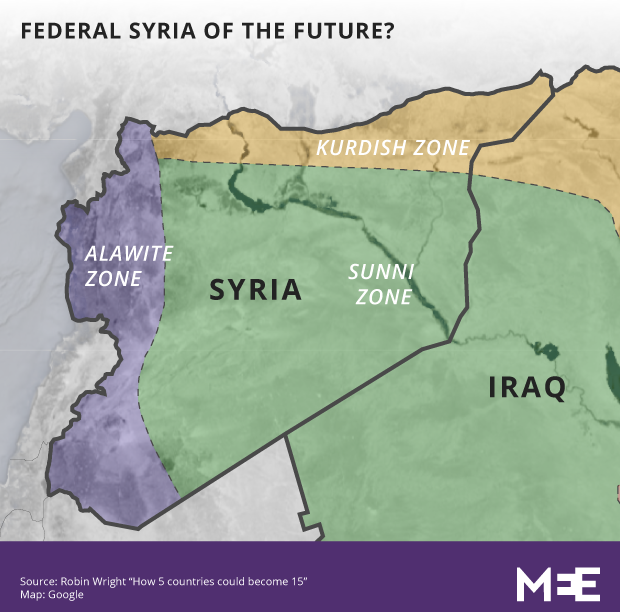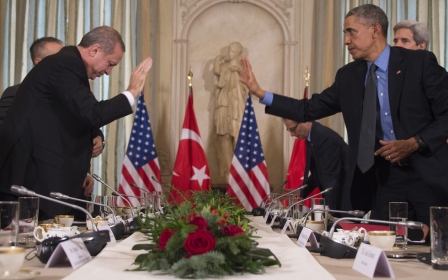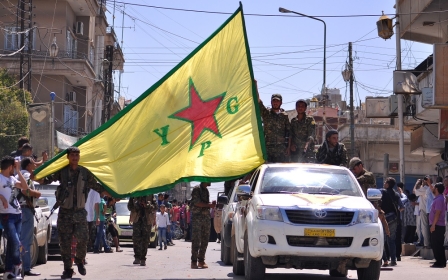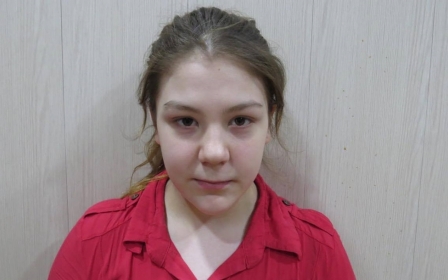ANALYSIS: US secretly backs federal future, say Syria's Kurds
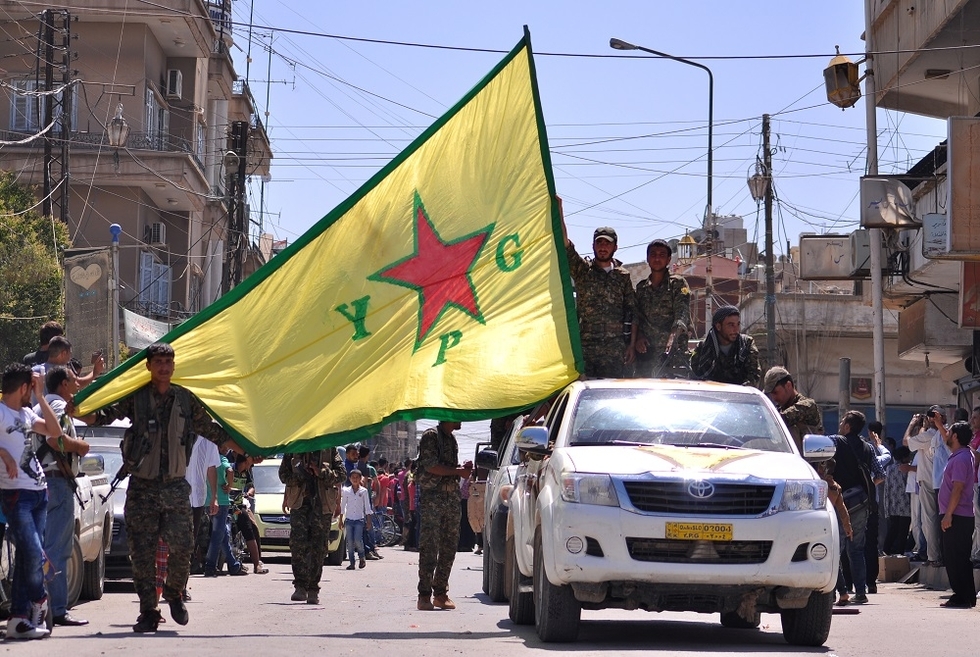
ERBIL, Iraq – Syrian President Bashar al-Assad and his Russian allies are edging ever closer to accepting a semi-autonomous Kurdish federal region in Syria, analysts and Kurdish sources have claimed.
Russia's foreign minister on Friday urged the UN to include Kurds in upcoming talks that aim to resolve the five-year Syrian civil war in yet another sign of growing ties between the two.
"Launching negotiations without the participation of this group would be a sign of weakness from the international community," Sergei Lavrov told reporters at a joint news conference with his Chinese counterpart.
Washington is still officially against the idea of a federalist state. However, in the face of a policy shift from Moscow and Damascus, analysts say the US might also be willing to consider this, further adding to speculation that a regional solution to the conflict is gaining ground ahead of scheduled peace talks in Geneva, planned for 14 March.
While the idea is nothing new, well-informed sources say it is gaining traction due to Russia’s willingness to curtail Turkish influence in northern Syria.
“The Syrian regime knows very well that it will be very hard to get power back in all of Syria, which is why they [are willing to] accept federalism,” Idris Nassan, a senior Kurdish official from the Kurdish city of Kobani, told Middle East Eye.
“The Kurds are also fighting to administer their own towns and cities, which means they are not looking to take Assad’s seat.”
According to Nassan, Russia’s recent willingness to help the Kurds - with Russian airstrikes underpinning a string of advances in mid-February - has been carried out “to weaken Turkey inside [Syria] and outside of Syria”.
Tensions between Turkey and Russia have been strained for some time, with Ankara and Moscow supporting opposing sides in the bloody Syrian war.
However, things deteriorated sharply in November when Turkey shot down a Russian jet it said had entered Turkish airspace, although Moscow denied this.
Since then, Russian state media and officials have been openly supportive of Kurds in Syria and Turkey, while also heavily criticising the Turkish president, Recep Tayyip Erdogan, and enacting a string of economic sanctions and travel restrictions.
"Russia knows very well that getting Turkey away from Syria will weaken Assad’s internal enemies, so the regime is going to be more powerful politically and militarily,” Nassan said.
"Russia also wants to have influence in Kurdish areas of Syria [Rojava] besides the US."
In February, Syrian Kurds opened a diplomatic mission in Moscow in a bid to cement Russian support of Kurdish autonomy in post-war Syria.
"It seems we do," said Pavel Felgenhauer, a prominent Russian military analyst, when asked if Russia supported the idea of an autonomous Kurdish region.
"The opening of a semi-diplomatic representation of the Kurdish Syrian Council in Moscow last month is a clear indication we support a semi-independent autonomous Syrian Kurdistan," he said.
Though the Moscow-based office is not formally recognised as a diplomatic mission, but rather as an NGO, the decision to allow any such mission to open was seen by many as further inflaming Turkey tensions, as well as offering tacit support of the Kurds.
'Secret support'
Washington’s stance on the issue could also be weakening, analysts and sources say.
In public, the US insists it is against a Kurdish semi-autonomous region - US State Department spokesman John Kirby said last month “that we don’t support some sort of separate semi-autonomous zone for the Kurds”.
Yet Kurdish officials told MEE that Washington in secret supports some kind of federalist deal.
“There will be three federal regions in Syria: Alawite, Kurdish and Sunni,” Nassan said. “It is the time of the Kurds.”
Former US ambassador to Syria Robert Ford told MEE that the priority for the US would be making any Damascus government capable of confronting armed groups operating in the country.
"The Americans probably are not against federalism, but neither will they insist upon it. They will want a Damascus government strong enough to confront the Islamic State and Nusra,” he said.
Nicholas Heras, a Washington-based Middle East researcher at the Centre for a New American Security, also told MEE that the US was concerned about looking like it was “backing the partition of Syria”.
“What the US does not want is the partition of Syria, [but] federalism is not partition,” he said. “What federalism will require is some authority to be retained in Damascus, and for the foreseeable future Assad's regime is the master of Damascus,” he said.
The UN has also toyed with the idea, and its special envoy to Syria, Staffan de Mistura, discussed federalism with the Syrian opposition during the Geneva talks in February. The Syrian opposition refused the proposals, stressing that Syria needed to remain a centralised state.
On Monday, the chief of Syria's main opposition body again rejected the idea, saying it was “the prelude to the partitioning of Syria" but on Friday de Mistura once again said the issue would stay on the agenda when talks resume next week.
Moves on the ground
Part of the drive toward federalism is being led by Kurdish gains on the ground.
In October 2015, the Syrian Kurds announced the creation of the Syrian Democratic Forces (SDF), which are made up largely of Kurdish forces but have attracted some Arab allies.
With backing from the US-led coalition against the Islamic State group, and more recently the Russians, the SDF has managed to shift the balance in the north and slowly carve out an area of control.
Last week, Massoud Barzani, the Iraqi Kurdish president, called on the Syrian Kurds to unite and agree on federalism within Syria.
Nevertheless, the Kurdish parties are still not able to unite, despite previous agreements to share power in Syria.
The Barzani-backed Kurdish National Council (KNC) prefers to work with the Syrian opposition bloc in Geneva, while the Democratic Union Party (PYD), the most powerful Kurdish party in Syria, will be excluded from Geneva due to Turkish pressure.
Moreover, the KNC accuses the PYD of working with the Syrian government, while the PYD accuses the KNC of working with Turkey, which opposes Kurdish autonomy in Syria.
“Barzani's call is great for all Kurds, but the PYD is on another side and doesn't accept anything to unite,” said Zara Salih, the UK representative of one of the parties of KNC in Europe.
The PYD, however, says the Syrian opposition doesn’t respect the Kurds and is responsible for the recent killing of Kurdish civilians in the city of Aleppo.
“The opposition is worse than the Syrian regime,” said Sherzad Yazidi, a representative of the PYD-dominated local canton administrations in Syria. “The KNC don’t represent the Kurds, they are just working for personal interests.”
While Assad previously opposed a Kurdish region and still opposes a new Kurdish education system, the government is realising it cannot oppose Kurdish control as long as they are backed by both Russian and US air strikes.
“I don't think they [Damascus] have much of a choice anymore. Kurds are strong. But more importantly, they share a common enemy with Turkey,” said Leith Abou Fadel, editor-in-chief of the English-language Syrian Arabic news website Al-Masdar.
“Giving the Kurds the border means that they will have to deal with the extremists crossing the border.”
According to Fadel, the only concern Syrian officials have is the access to the oil fields in the Hasakah province controlled by Kurds “which I am presuming can be negotiated for access to Syria's ports”.
Opposition remains
Yet for all the talk of federalism, serious opposition remains.
The Turkish and Saudi-backed Syrian opposition is fiercely against any divisions. “The opposition is pushed by Turkey and Saudi Arabia, the most anti-Kurdish countries,” said Idris Nassan, a Kurdish official in Kobani.
“They [the opposition] are educated by the Baath party, so they want to remove Assad, and sit in the same chair, doing the same things, and we will see a new dictatorship in our country,” said Majdal Delli, a member of one of the parties of the KNC based in Qamishli.
Abdurahman Harkoush, a Syrian activist close to the rebels, says the Syrian opposition cannot say no to Turkey.
“Turkey will not let the Syrian opposition accept federalism because of its fears of the Kurdish state that will appear in the north,” he said. “When it comes to the distribution of territories, I am sure that there will be a lot of differences.”
US-based analyst Heras also stressed that Turkey would be highly unlikely to endorse federalism as it would allow the PKK to have “base of operations for planning and executing attacks against Turkey".
The Turkish Prime Minister Ahmet Davutoglu visited Iran on 5 March and said Turkey and Iran shared a common perspective on protecting Syria's territorial integrity.
Nor have the Kurds sealed the deal on the ground and, for all their advances, they have yet to link the two Kurdish enclaves of Kobani and Efrin in northern Aleppo into one extended Kurdish territory.
However, some sort of compromise could well emerge.
Former Syrian foreign ministry spokesman Jihad Makdissi, who is now an independent politician in the Syrian opposition, told MEE that he supported plans in which every region could administer itself in a unified Syria.
“I guess President Assad would accept a special status for Kurds in terms of local administration, and that would serve his anti-Erdogan stance as well,” he said, while adding that Moscow and Tehran probably hold the final say on such a solution, although he said they would not be too difficult to convince.
It might even be possible to get Turkey on side, if Assad promised to support Ankara against the PKK, although at present this remained a distant prospect due to Russia’s sway over Syria and its unwillingness to mend bridges with Turkish President Recep Tayyip Erdogan.
Heras said: “At the end of the day, the US needs to act like the superpower and make the Turks understand that the Syrian Kurds have their Rojava region, and to make the Kurds understand that their Rojava can't include all the Kurdish-majority areas [in Aleppo] throughout northern Syria.”
New MEE newsletter: Jerusalem Dispatch
Sign up to get the latest insights and analysis on Israel-Palestine, alongside Turkey Unpacked and other MEE newsletters
Middle East Eye delivers independent and unrivalled coverage and analysis of the Middle East, North Africa and beyond. To learn more about republishing this content and the associated fees, please fill out this form. More about MEE can be found here.


